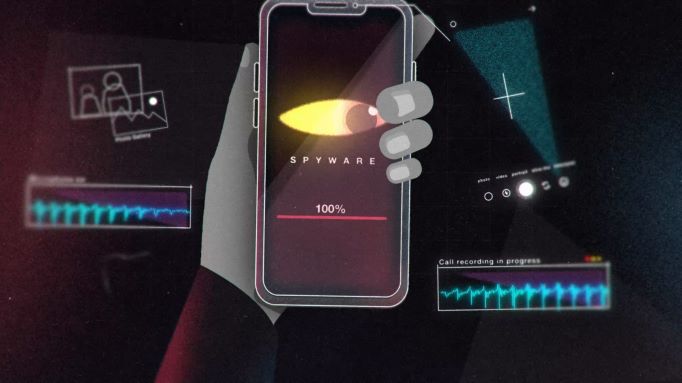New York— The development of high-tech “zero-click” spyware – the kind that takes over phones without a user’s knowledge – has had a chilling impact on press freedom, finds a new special report released recently by the Committee to Protect Journalists (CPJ).
The report, Zero-Click Spyware: Enemy of the Press, found the mere threat of surveillance by spyware severely hinders journalists’ ability to do their jobs, and its use puts them at risk of increased harassment, violence, and sometimes precedes imprisonment. (Illustration by Walid Haddad)
Sophisticated surveillance technology, such as NSO Group’s Pegasus software, goes undetected as it infiltrates the devices of journalists, allowing the perpetrators to access phone calls, photos, emails, and messages — even ones sent via encrypted services like Signal.
CPJ’s new report includes first-hand accounts from journalists on how the disclosures have affected their work since they were named as possible surveillance targets in the revelatory 2021 Pegasus Project report. In reports from Hungary to India, Mexico to Morocco, journalists told CPJ that the simple prospect of spyware made it harder to conduct meetings, interact with sources, report on sensitive topics, and communicate with loved ones.
“Spyware technology poses an existential challenge for journalism. This insidious technology compromises editorial planning and can dissuade journalists from reporting on critical stories or discourage would-be sources from coming forward, carving a hole into the very fabric of journalism — the ability to report freely and safely,” said Gypsy Guillén Kaiser, CPJ’s advocacy and communications director. “Spyware brings another layer of risk to reporting that extends to the personal sphere when journalists’ families and associates are also targeted. Legislators everywhere must swiftly act to curtail the threats posed by this technology and hold perpetrators of illicit spyware use to account.”
The spyware industry’s lac

